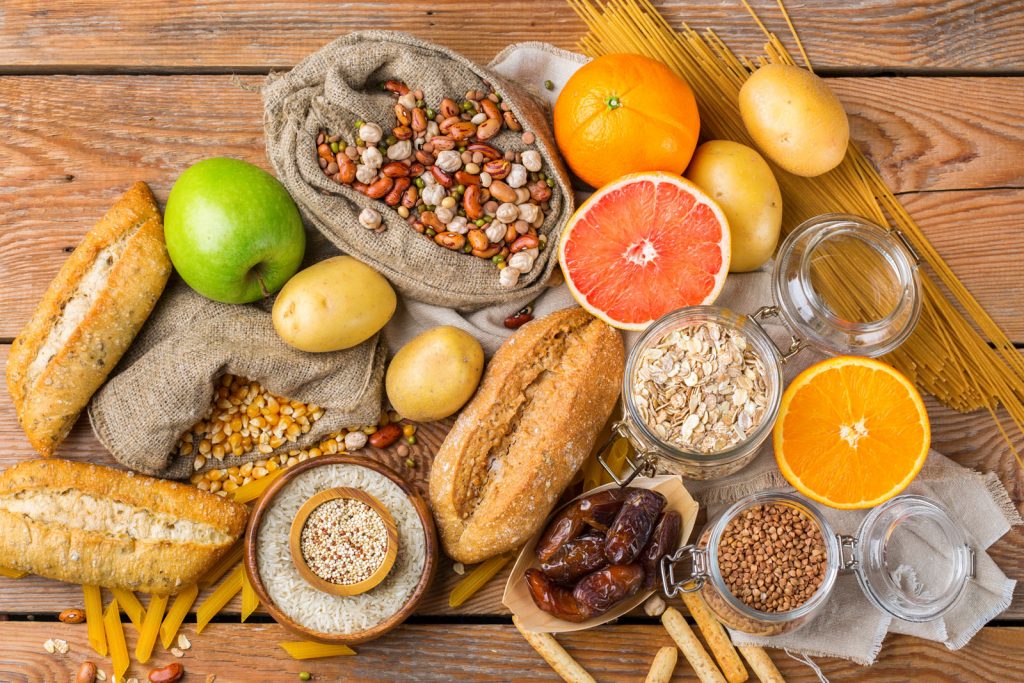Learn about the top supplements to lower cholesterol and enhance your well-being. Dive into our blog for more information.
What Are The Best Supplements To Lower Cholesterol?

The new common language will be more simple and regular than the existing European languages. It will be as simple as Occidental; in fact, it will be Occidental. To an English person, it will seem like simplified English, as a skeptical Cambridge friend of mine told me what Occidental is. The European languages are members of the same family. Their separate existence is a myth. For science, music, sport, etc, Europe uses the same vocabulary.
Key Takeaways
- Cholesterol is essential – It plays a role in hormone production, digestion, and brain health, but imbalances can contribute to cardiovascular disease.
- Not all cholesterol is bad – LDL is often blamed, but inflammation and oxidation play bigger roles in plaque formation.
- Natural supplements can support cholesterol balance – Nutrients, herbs, and functional foods can aid cholesterol metabolism and cardiovascular health.
- Top nutrients for cholesterol management include: Omega-3 fatty acids, Resveratrol and Red yeast rice.
- Top herbs for cholesterol reduction include: Turmeric, Globe artichoke, Garlic.
- Food matters – Oily fish, plant sterols, and fiber-rich foods all play a key role in maintaining healthy cholesterol levels.
Introduction
8.4% of Australian men were living with high cholesterol in 2022. Lifestyle changes are the main way to manage cholesterol, but some dietary supplements, including herbs, nutrients and specific foods can also help reduce cholesterol. This article explores the different types of cholesterol and lists some of the supplements I use in practice that can naturally lower cholesterol levels.
Understanding Cholesterol
Cholesterol is a fatty substance that our bodies needs for many functions- including sex hormones, producing digestive enzymes (cholesterol is the basic building block of bile!) and brain health. There are two types of cholesterol: which are commonly known as good cholesterol (HDL) and bad cholesterol (LDL). HDL cholesterol acts by bringing extra cholesterol from our blood and sending it to the liver. This keeps it from building up in the arteries. On the other hand, LDL cholesterol can create plaque in the arteries. There’s a lot more to plaque formation than doctors used to think, which includes the oxidation of fats and an inflammatory response, which hardens the cholesterol. I’ve discussed the truth about LDL not being the bad guy everyone has made out in previous posts. If you’d like to understand more about what actually contributes to plaque formation, you can read my article here.
Despite the new understanding of LDL, what we do know is that plaque can block blood flow and this raises the risk of heart disease.
The Types of High Cholesterol
High cholesterol, or hypercholesterolaemia, is associated with increased risk of heart disease. That’s a well known piece of health information now! However, there are a lot of individual factors that come into play when trying to reduce your risk of heart attack.
Most people mistakenly think of elevated cholesterol as being a single disorder. While these terms are often used in the same way, hyperlipidemia, hypertriglyceridemia, and
hypercholesterolemia are actually slightly different- and all require different treatment. Knowing the types of cholesterol is also important when it comes to managing cholesterol levels and preventing health issues.
Hyperlipidemia is a general term that means high overall levels of lipids in the blood or total cholesterol. This includes all forms of cholesterol, and also triglycerides.
Hypertriglyceridemia means that there are high levels of triglycerides in the blood. Like cholesterol, high triglycerides can harden arteries and raise the risk of heart disease. I tend to address this as a risk factor for diabetes, rather than heart disease.
Hypercholesterolemia means that there are high levels of LDL cholesterol, often known as “bad” cholesterol.
Dyslipidemia is an imbalance between cholesterol ratios- which is often neglected, despite it being an important indicator of risk.
Knowing these differences is important for correct diagnosis and more effective treatment to prevent cardiovascular disease and circulatory disease.
How Can I Lower Cholesterol Naturally?
Men are more likely to suffer from coronary heart disease, they are also more likely to develop heart disease earlier in life! This fact emphasises the importance of men managing their cholesterol. Using supplements can support this process, especially when paired with lifestyle changes, including weight loss, reducing high blood pressure (you can read more about my recommendations for reducing blood pressure here), and managing stress.
Let’s explore some of the best supplements to lower cholesterol and support heart health.
Natural Supplements To Lower Cholesterol Levels:
1. Omega-3 Fatty Acids
Omega-3 fatty acids, predominantly found in fatty fish, have heart-healthy benefits. These essential fats can’t be made by our bodies, and can reduce triglyceride levels. Research indicates that omega-3s can also moderate HDL cholesterol levels, and reduce cardiovascular risk.
Incorporating fatty fish such as salmon, mackerel, or sardines into your diet is an excellent way to increase your intake of omega 3s. However, if consuming fish regularly is not feasible, omega-3 supplements can be a convenient alternative. I am very particular about the types of omega-3 supplements I recommend, as many are contaminated, oxidised or have poor nutritional ratios of EPA and DHA.
EPA or eicosapentaenoic acid is found in cold water fish. EPA prevents blood clotting easily, and reduces triglycerides and inflammation. DHA or docosahexaenoic acid may reduce the risk of heart and circulatory disease by thinning the blood, reducing inflammation and lowering triglycerides. DHA is also important for eye, brain and nerve health.
It’s important to note that while omega-3 supplements can be a valuable addition, obtaining nutrients from whole foods is generally recommended whenever possible. A balanced approach includes a variety of nutrient-rich foods, alongside supplements to fill the gaps as required.
2. Resveratrol
Resveratrol, is a potent antioxidant present in grapes, berries, and red wine, and has gained publicity for its potential benefits to heart health. Ongoing research is exploring its role in lowering cholesterol levels. Some studies indicate that resveratrol may prevent the oxidation of LDL cholesterol, a critical step in plaque formation. Additionally, it has been demonstrated that resveratrol can enhance blood vessel function, and reduce clot formation reduce inflammation, contributing to overall heart health improvement.
Moderate consumption of red wine is generally considered safe and offers a natural source of resveratrol. However, by incorporating foods rich in resveratrol (such as berries) into your diet, you can potentially reap the benefits of this antioxidant.
3. Red Yeast Rice
Red yeast rice, a fermented rice product, has gained popularity due to its potential health benefits. One of the key compounds found in red yeast rice is monacolin K, which bears similarity to statins – a pharmaceutical medications used for reducing cholesterol levels.
Studies show that red yeast rice can lowering LDL (“bad”) cholesterol levels by inhibiting an enzyme crucial for cholesterol synthesis. It may also increase HDL (“good”) cholesterol levels by
enhancing HDL production.
Despite its promising effects, caution is advised when consuming red yeast rice supplements. Red yeast rice extracts containing monacolin K can have similar side effects to statins, including muscle, kidney and liver damage, so it is recommended that you speak to a functional medicine provider so they can assess your health history and prescribe a safe product and dosage.
Best Supplements To Lower Cholesterol

1. Turmeric: A Supplement To Reduce Atherosclerosis
Turmeric or Curcuma longa, is commonly found in Indian cuisine, and contains a potent compound known as curcumin. Curcumin is now commonly used for its anti-inflammatory properties, and research shows it is beneficial for heart health. Studies show that curcumin targets multiple biological pathways which contribute to atherosclerosis and heart disease.
Not only does turmeric reduce LDL cholesterol levels, it also inhibits the oxidation of LDL cholesterol (which is implicated in atherosclerosis as I explain in my article here), and it also
promotes the clearance of cholesterol from the body by the liver. In doing so, turmeric can potentially lower the risk of fatty deposits in the arteries. Additionally, curcumin can enhance the function of blood vessels, through the prevention of oxidation, which promotes the flexibility and overall health of your vascular system.
It’s important to note that while turmeric adds flavor to dishes, consuming curcumin in supplement form is generally essential for full benefits, as there are specific dose regimes required for positive health effects.
2. Herbs for Reducing Cholesterol: Globe Artichoke
Globe artichoke or Cynara scolymus is a cholesterol-lowering herb. I use it with patients with all types of lipid dysregulation. Research shows that artichokes contain natural compounds, like cynarin and luteolin, that help reduce the production and absorption of cholesterol, and also promote its removal from the body. One study found that patients with high cholesterol who took artichoke extract daily lowered their total cholesterol by 18%, with a significant 20% reduction in “bad” LDL cholesterol and improved HDL-to-LDL ratios.
Globe artichoke is also beneficial because it helps the body produce more bile, which plays a key role in breaking down fats and removing cholesterol. Cholesterol is needed to make bile, so when bile production increases, more cholesterol is used and eliminated!
Only certain parts of artichoke have these health benefits, so it’s important to seek advice from someone with herbal qualifications.
3. Garlic: A Cholesterol Lowering Herb
Allium sativum is the latin name for a very common and versatile cooking ingredient, which also has numerous health benefits. Research indicates that garlic can enhance cardiovascular health by both lowering blood pressure and reducing cholesterol levels.
One study showed that participants who took garlic supplements over 12 weeks saw a significant reduction in total cholesterol and LDL cholesterol compared to placebo.
A proposed mechanism for garlic’s hypocholesterolemic effect suggests that garlic inhibits an enzyme responsible for cholesterol synthesis in the body. Additionally, garlic’s ability to reduce inflammation and improve circulation supports overall cardiovascular health, making it a versatile addition to any heart-healthy diet.
Garlic is contraindicated in many health conditions and medications, and should only be used under professional advice.

What Foods Reduce Cholesterol?
Cholesterol Lowering Foods
Oily Fish
We already discussed the health benefits of omega 3’s which are found in oily fish, such as salmon, mackerel, sardines, and trout. A study found that individuals who consumed oily fish regularly had a 9% lower risk of cardiovascular disease compared to those who did not. This makes it a key superfood to factor into your weekly meal planning!
A key consideration when adding fish to your diet is what size it is! The larger fish often eat the small fish so they are higher in toxins like mercury. Opting for wild-caught fish or fish from reputable fisheries that prioritise eco-friendly practices can also help minimise exposure to harmful contaminants such as mercury and polychlorinated biphenyls (PCBs), which tend to accumulate in larger fish. Smaller fish like sardines and mackerel are generally safer options with lower levels of toxins. If access to fresh fish is limited, omega-3 supplements sourced from small fish or algae could provide a safer, more sustainable alternative, while still offering heart health benefits.
Plant Sterols
Fibre-Rich Foods

Frequently Asked Questions
Is there a natural alternative to statins?
How often should I test my cholesterol?
Can dietary changes help lower cholesterol?
Yes, a healthy diet that has low saturated fat and dietary cholesterol can really help reduce high cholesterol levels. Eating foods that are high in soluble fiber, like oats and beans, can also help lower cholesterol. However, it’s best to mix these diet changes with other lifestyle changes, such as regular exercise, for the best results.











